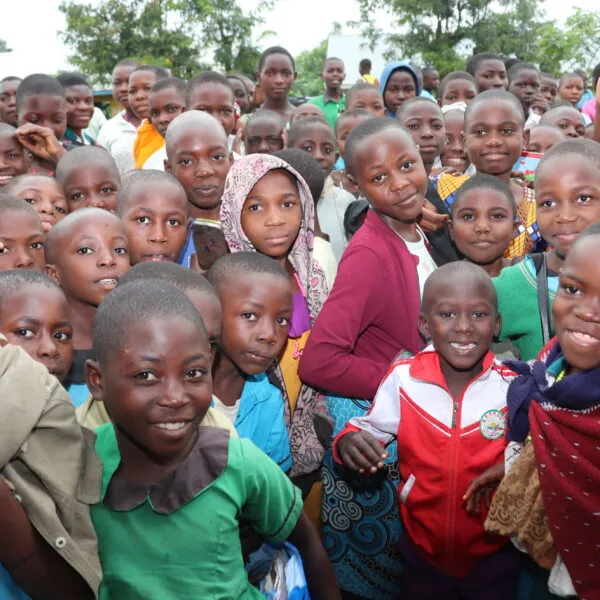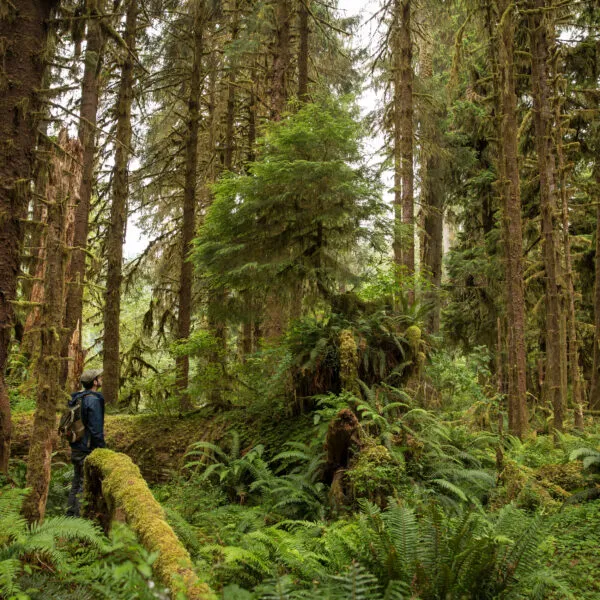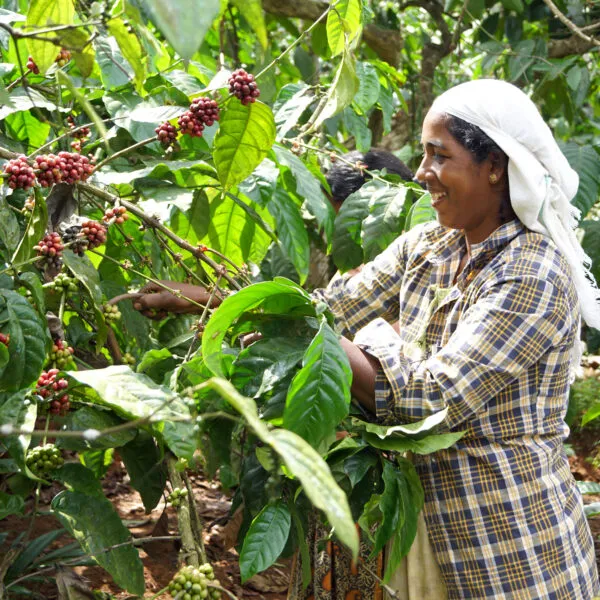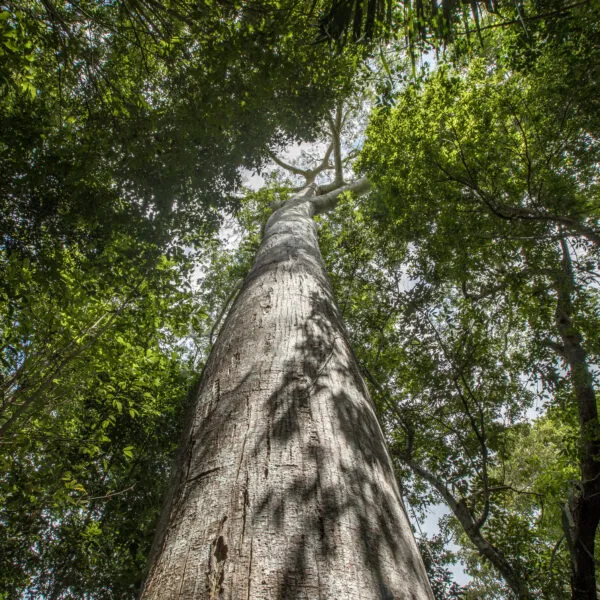More than 1.8 million smallholder farmers in Uganda depend on coffee for their livelihoods. In fact, Uganda is the second largest coffee producer in Africa, and the eighth largest worldwide—producing about 10 percent of the world’s coffee supply. Despite this, the majority of Ugandan smallholder coffee farmers live below the poverty line and work on farms that average less than 0.2 hectares. This increases the risk of child labor and the likelihood that their children won’t receive a decent education.
Many Ugandan coffee farmers can’t afford school costs, or the cost of hiring workers, and need their children to help on the farm. To compound the issue, many farming communities don’t share a clear understanding of what constitutes child labor, nor are there appropriate public services in place to address the issue head on. This leads to further entrenchment of child labor practices, and more children missing out on their education.
Within the Greater Masaka and Rwenzori districts of Central and Western Uganda respectively, a 2021 baseline assessment of coffee-growing communities showed that a significant number of children were engaged in child labor, and many were not attending school:
Children engaged in child labor
| Ages 6-13 | Ages 14-17 | |
| Masaka | 18% | 33% |
| Rwenzori | 37% | 82% |
Children out of, or only partly in, school
| Ages 6-13 | Ages 14-17 | |
| Maska | 12% | 55% |
| Rwenzori | 40% | 77% |
Without childhood education and the opportunities it brings, the cycle of poverty will likely continue for the next generation. This project therefore works to address the root causes of child labor identified in these regions:
- Poverty and access to markets
- The education system (access, quality of learning environment, and cost)
- Policies and governance (weak regulation and enforcement)
- Cultural and gender norms
Location
Greater Masaka and Rwenzori districts of Central and Western Uganda.
Project period
2020 – 2023
Partner Communities
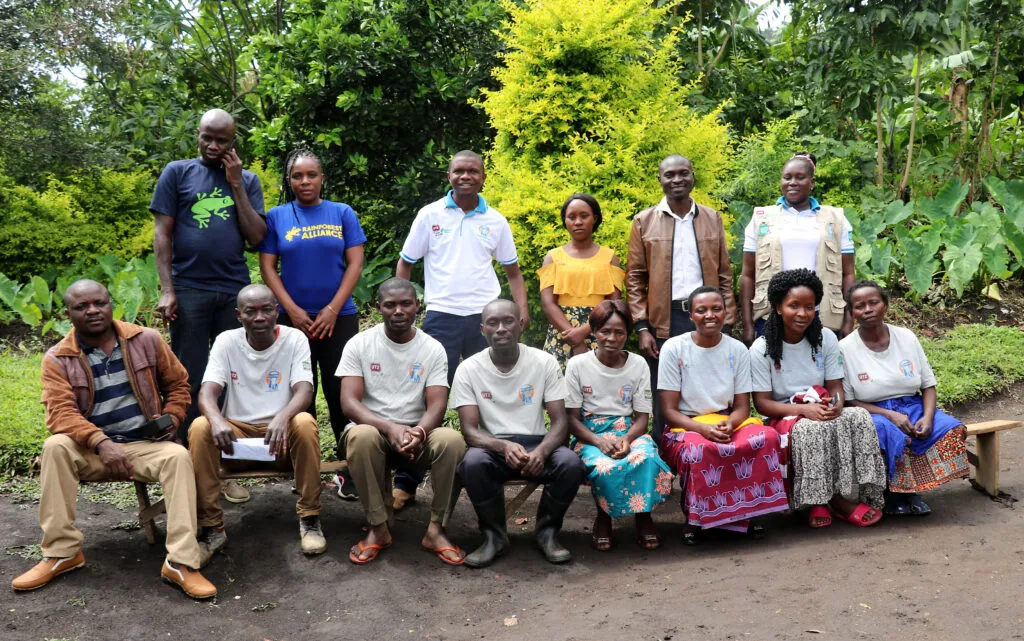
The project is being implemented across two critical coffee-growing regions, Greater Masaka and Rwenzori, in a coordinated approach. At least 9,000 coffee-growing households will be assessed as part of this effort to combat child labor, while recognizing local nuances that result in child labor manifesting differently in the two regions.
The project is applying a participatory approach to tackle this complex issue, working with households, communities, and local stakeholders—such as teachers, religious and cultural leaders, local government officials, and district education officers—to ensure the sustainability of all the delivered activities and project structures.
Project Objectives
The project aims to implement activities that:
- Are holistic and address the root causes of child labor
- Are community-driven
- Are cost effective
- Are scalable and can be replicated in other areas
- Generate learnings to be shared amongst partners and stakeholders to drive a better understanding of the processes, systems, and incentives that can lead to a reduction of child labor within coffee-growing communities.
Desired Impacts
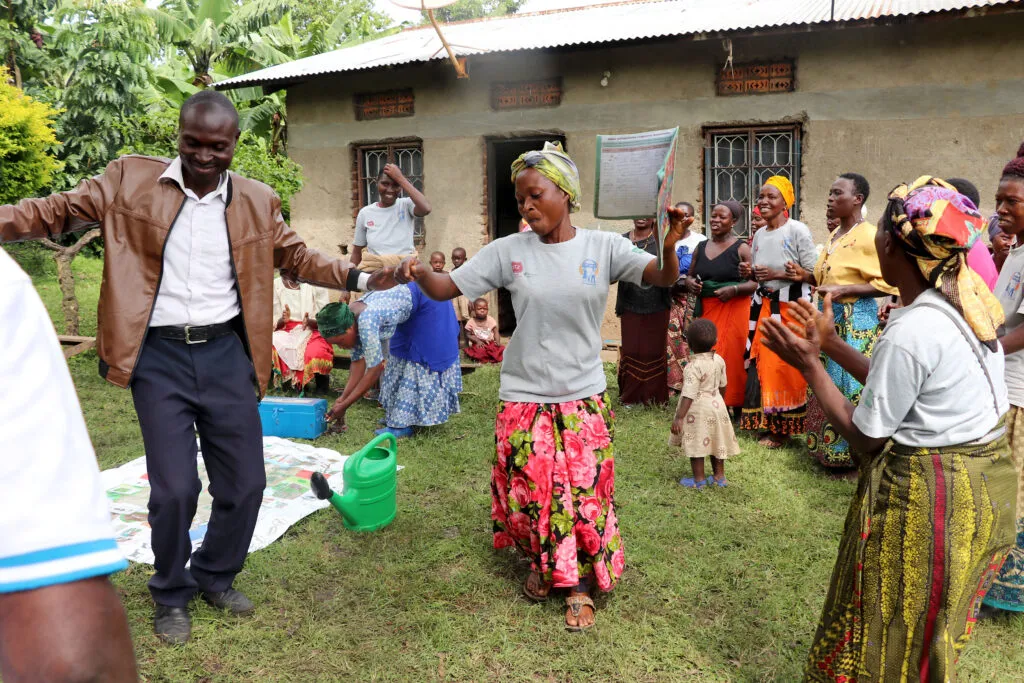
With the overarching goal of reducing child labor within coffee-farming communities, this project aims to create specific impacts within the partner communities—generating insights for other stakeholders to follow within their own contexts:
- Coffee farmers in Rwenzori have strengthened capacity and livelihood strategies that support their children’s development and education and do not involve child labor, with a focus on children of primary school age.
- Communities’ support structures are mitigating and remediating child labor situations sustainably within their areas.
- Coffee farmers in Masaka have strengthened capacity and livelihood strategies that support their children’s development and education and do not involve child labor, with a focus on youth between the ages of 14 and 18.
- Through effective collaboration and learning from the applied approaches, international, national, and local supply chain actors are better equipped to tackle child labor through integrated approaches.
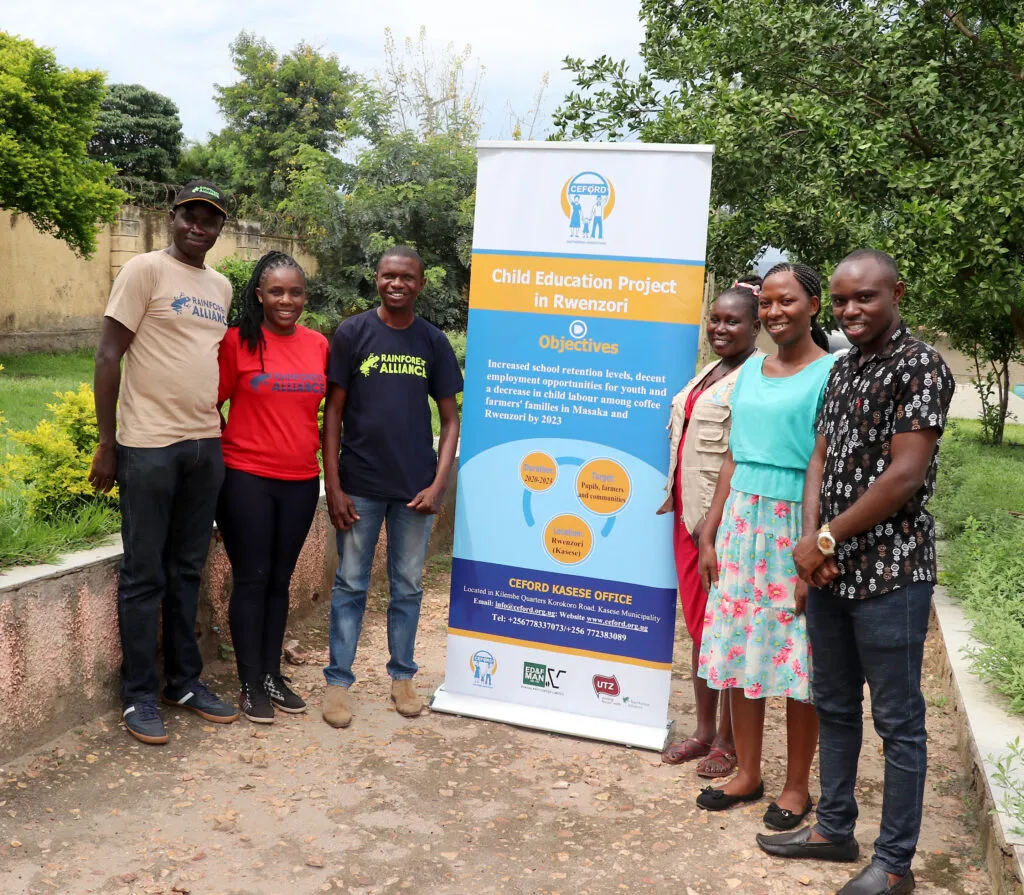
Funders
The Netherlands Enterprise Agency (RVO) Fund Against Child Labour (FBK), commissioned by the Netherlands Ministry of Foreign Affairs
Partners
- JDE
- KCL
- CEFORD
Rainforest Alliance contact
Rashida Nakabuga, Uganda Country Director, RNakabuga@ra.org

